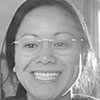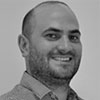A practical guide to maximizing the Reversed Phase LC (RPLC) separation’s peak capacity
Method development can be straightforward for simple samples, where target, degradant and sample matrix compounds are known, and critical peak pairs resolved. For complex samples, the sample’s own matrix complicates the separation, with many unknown analytes that can co-elute and lead to a loss of resolution between critical peak pairs. Therefore, the best approach for complex sample separations is to maximize the separation power afforded by the accessible separation and detection technologies and subsequent optimization of the method to gain the highest practical peak capacity.
In this talk we highlight a practical approach, based on a thorough fundamental and practical understanding of reversed phase LC (RPLC) gradient elution theory. A guide that is accessible to all analysts and exploits the sample to guide the method development and column selection decisions. Two protocols will be shared, that are well established and used in practice for complex samples encountered across different industries and applications. One protocol is aimed at relatively larger peptide type separations and another, focused on small molecules.
Presented by:
 |
Arianne Soliven is a Product Specialist at Avantor for manufactured LCMS products. She obtained her PhD in Australia with Prof. Andrew Shalliker and has worked with chromatography leaders, the eminent Prof. Georges Guiochon and Prof. Peter Carr. She has worked in the manufacturing sector with Advanced Materials Technology and in the pharmaceutical industry with Novartis. She is currently an honorary adjunct fellow at Western Sydney University, Australia, and an editorial board member for Chromatographia. She is passionate about sustainability and supporting diversity, equity, and women in science. With >15 years of chromatography experience and a proven strong track record of scientific collaborations with >50 peer-reviewed publications with 79 co-authors around the globe. | |
 |
Andrés Pérez-Parada is currently a Professor at the University of the Republic, Uruguay and active member of the National System of Researchers of that country. He obtained his PhD conducting research in pesticide residue analysis with Prof. Amadeo R. Fernandez-Alba (University of Almeria, Spain) and Prof. Horacio Heinzen (University of the Republic, Uruguay). He focuses his research on environmental and food analytical chemistry using cutting-edge chromatography and mass spectrometry. Andrés has contributed to the field with > 45 publications accumulating > 1,000 citations in top international journals. | |
 Email Alerts
Email Alerts